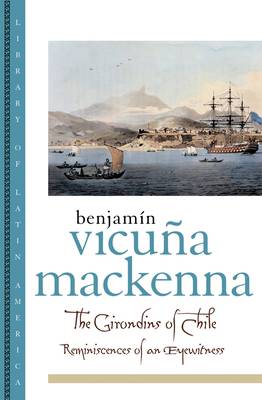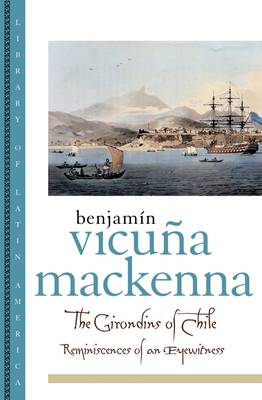
- Afhalen na 1 uur in een winkel met voorraad
- Gratis thuislevering in België vanaf € 30
- Ruim aanbod met 7 miljoen producten
- Afhalen na 1 uur in een winkel met voorraad
- Gratis thuislevering in België vanaf € 30
- Ruim aanbod met 7 miljoen producten
Zoeken
The Girondins of Chile
Reminiscences of an Eyewitness
Benjamin Vicuna MacKenna, Benjamin Vicuuna MacKenna
€ 18,95
+ 37 punten
Omschrijving
The Girondins of Chile tells of the strong influence that the European revolutions of 1848 had in Chile, and how they motivated a young Santiago society with high cultural aspirations but little political knowledge or direction. Benjamin Vicuña Mackenna, a Chilean writer and historian who lived during those days in Santiago, relates the events of the time, events in which he was a participant. He pays special attention to how the 1848 revolutions influenced a group of young liberals he called "Chilean Girondins." When news of the fall of Philippe d'Orléans and the installation of the Second Republic arrived, there was an explosion of jubilation in Santiago. Now there were no barriers to ideas, "much less to the generous ideas proclaimed by the sincere people of France." But when a proletarian revolution took place in France in June, Chilean public opinion became virulently anti-revolutionary. Except, of course, among the liberal youth, the Chilean Girondins, who were headed towards revolution--and sooner than anyone thought.
When revolution came in 1851, Vicuña Mackenna found himself sentenced to death for taking part in the uprising. After escaping and spending some years in exile, he was able to return in 1855. He remained active in politics, yet his account of what happened in the 1851-52 revolution was not published until 1876.
When revolution came in 1851, Vicuña Mackenna found himself sentenced to death for taking part in the uprising. After escaping and spending some years in exile, he was able to return in 1855. He remained active in politics, yet his account of what happened in the 1851-52 revolution was not published until 1876.
Specificaties
Betrokkenen
- Auteur(s):
- Vertaler(s):
- Uitgeverij:
Inhoud
- Aantal bladzijden:
- 42
- Taal:
- Engels
- Reeks:
Eigenschappen
- Productcode (EAN):
- 9780195151817
- Verschijningsdatum:
- 21/08/2003
- Uitvoering:
- Paperback
- Formaat:
- Trade paperback (VS)
- Afmetingen:
- 173 mm x 209 mm
- Gewicht:
- 136 g

Alleen bij Standaard Boekhandel
+ 37 punten op je klantenkaart van Standaard Boekhandel
Beoordelingen
We publiceren alleen reviews die voldoen aan de voorwaarden voor reviews. Bekijk onze voorwaarden voor reviews.











